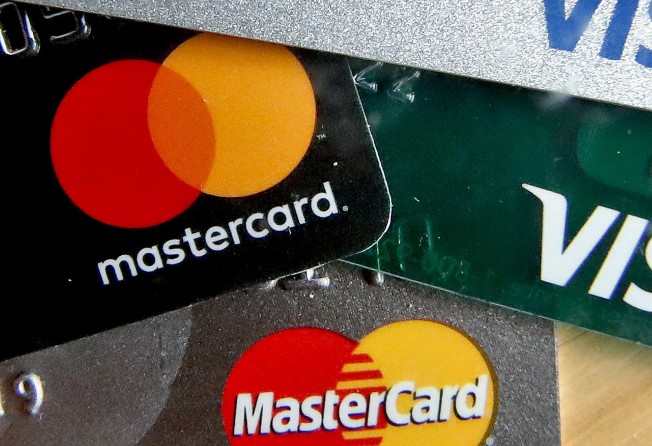China’s central bank approves Mastercard joint venture for clearing business
- Approval comes three weeks after China and the US sign phase one trade deal, but three decades after Mastercard established a presence in China
- US bank card firms face an uphill battle in China, given dominance of UnionPay and Chinese consumers preference for mobile phone payment apps

China’s central bank on Tuesday said it had approved an application from Mastercard's joint venture to establish a bank card clearing business in China, a major step in the US company’s decades-long march to enter the yuan payment and clearing market.
The American firm’s joint venture, which was established in March 2019 with the central bank affiliated Netsunion Clearing Corporation, will start preparing a new institution to begin bankcard clearing services , the People’s Bank of China (PBOC) said in a statement.
Netsunion was established in 2017 and all third-party payment services involving bank accounts must go through its platforms, cutting direct clearing between banks and service providers such as Alipay and Wechat Pay, and giving Beijing access to data on all mobile transactions.
Mastercard said in a statement that the company will “be able to apply to the People’s Bank of China for formal approval to begin domestic bank card clearing activity” within a year.
The approval by China was granted three weeks after Beijing and Washington signed their phase one trade deal, in which China promised it would further open its domestic financial market to firms from the United States.
The central bank said in a statement that the approval reflects China’s commitment of “opening up the financial sector”, but it did not mention the partial trade deal.
“For the next step in the opening up [of the financial system], the People’s Bank of China will deal with bank card applicants in an open, just, and fair manner while improving supervision and maintaining financial stability,” the PBOC statement said.
Beijing has long insisted on state control of key financial infrastructure, including the clearing and online payment market, despite Washington’s insistence on wider access to the Chinese market.
Mastercard set up a representative office in China as early as 1988, when bank cards barely existed in the country. But it has struggled ever since to access users of bank cards.
China UnionPay has emerged as a home-grown alternative to Mastercard and Visa. In addition to its near monopoly in the Chinese market, UnionPay is rapidly expanding around the world and now has a presence in 177 countries with more than 100 million cards issued overseas.
The World Trade Organisation in 2012 sided with the US that China had unfairly discriminated against American bank card firms and must open its market. US trade officials say China’s slow response to the ruling is a prime example of Beijing’s unwillingness to keep to promises and has used it as justification for an enforcement mechanism in the phase one deal.
The Mastercard Netsunion Information Technology joint venture comes after the US company’s first partnership with a local firm failed to crack the domestic market.
American Express received preliminary approval in November 2018 to begin operating on similar conditions. It owns a 50 per cent stake in a venture with Lianlian Digital Technology.
Visa International, another US bank card giant, is still waiting for government approval of its Chinese operations.
Purchase the China AI Report 2020 brought to you by SCMP Research and enjoy a 20% discount (original price US$400). This 60-page all new intelligence report gives you first-hand insights and analysis into the latest industry developments and intelligence about China AI. Get exclusive access to our webinars for continuous learning, and interact with China AI executives in live Q&A. Offer valid until 31 March 2020.